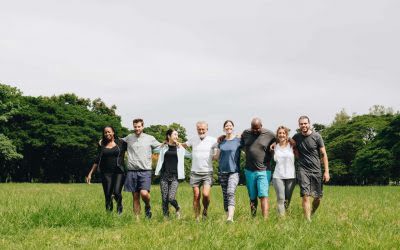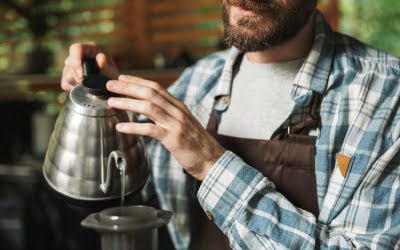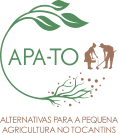They may misunderstand you or forget that you don’t intend to drink alcohol. If you do accidentally take a sip of an alcoholic beverage, don’t panic. It’s only a sip, and it doesn’t mean you’ve relapsed—or that you should entertain the thought of relapsing now. If you become a ball of wretched energy during the holidays, perhaps your own expectations have become your downfall. Family members expect holiday perfection, and they often demand every ounce of your time and energy—and patience. The family menu is a constant carb-load, and traveling puts a strain on your wallet.
How to Develop a Sober Bucket List
For example, noticing feelings of boredom, anxiety, loneliness, or restlessness can signal an upcoming vulnerability to relapse. Being aware of the four C’s allows treatment providers and individuals in recovery to develop targeted strategies. Recognizing cravings early enables the implementation of coping techniques like mindfulness or distraction. https://nufiagro.com/ng/2022/12/22/how-to-deal-with-emotional-setbacks-during/ Ultimately, broad awareness and management of triggers are essential tools in lifelong recovery, reinforcing emotional and psychological resilience.
Top Inpatient Rehab Benefits: Comprehensive Care for Sustainable Recovery

Your journey to recovery is a path toward a brighter and more fulfilling future, and the holiday season can be a season of healing and transformation. I’m in recovery myself, and have coached many others through the experience. Here are my most tried-and-true tips to help you through this stretch of the year. Some family events and traditions revolve around drinking alcohol, such as parties featuring lots of festive alcoholic drinks or drinking games that the whole family participates in. During the holidays, people tend to overindulge too, which can lead to binge drinking. You deserve to feel joy at this time of year just like everyone else, so keep these tips in mind as you navigate your way through the holiday season and through your early recovery.
Virtual Eating Disorder Treatment for Teens Provides Support Without Leaving Home
With self-awareness and preparation, you can prioritize recovery and still find moments to enjoy the season. For example, rehearse responses to comments that may feel triggering or designate a “safe person” to connect with during gatherings. Step into another room for a quiet space or take a walk to reset your focus. Recognizing early warning signs, such as emotional distress or physical discomfort, allows preemptive action. Engaging in activities that promote well-being—exercise, hobbies, meditation—distracts from cravings and builds resilience. This might involve steps like stepping away from a triggering situation, practicing quick mindfulness exercises, or calling a trusted friend or sponsor.
Pre-Event Relaxation Activities
- Managing internal triggers in addiction recovery often involves learning how to relax and calm the mind and body.
- If you need assistance booking, we’ll be happy to help — our support team is available 7 days a week.
- This means becoming aware of the internal sensations or emotions that often precede cravings or disruptive behaviors.
- After individuals spend some time identifying potential relapse triggers, they must also identify effective ways to manage those triggers.
- Give yourself a break by letting go of the need to meet the expectations of others.
Hydration is equally important; dehydration can mimic withdrawal symptoms like fatigue and confusion, which may heighten emotional triggers or cravings. Drinking plenty of water throughout the day helps maintain bodily functions and emotional stability. Well-balanced diets rich in vitamins, minerals, and antioxidants support brain health and stabilize mood, which is reframing holidays in early recovery vital for effective coping with triggers.
Managing Stress and Emotions

We utilize an accessibility interface that allows persons with specificdisabilities to adjust the website’s UI (user interface) and design it to their personal needs. By submitting this form, you agree to Asana Recovery’s Privacy Policy. You also consent to Asana Recovery contacting you by phone, text message, and email regarding your insurance benefits and treatment services. This book has helped so many men and women; and we want to give it you for FREE.
- Our unique in-home treatment model of care gives clients a significantly better chance of recovery than traditional inpatient rehab care.
- The holidays can magnify feelings of loneliness, strained finances, or difficult family relationships, all of which could lead to feelings of wanting to drink or use drugs.
- Engaging with friends, family, support groups, or mentors creates a safety net during stressful or tempting moments.
- It might also help to dream big – like a vision board that highlights your sober wins, acting as a little reminder of how far you’ve come.
Main Content
However, one thing that all triggers have in common is that they trigger emotional distress, which can lead to an emotional relapse. Skip gatherings or environments where alcohol or drugs will be the central focus. Thoughtfully addressing triggers reduces the chance of setbacks and allows you to approach the holidays with confidence.
How Much Is Too Much? Addressing the Uncertainty in Treatment for Those Who Have Had Multiple Attempts
It might also help to dream big – like a vision board that highlights your sober wins, acting as a little reminder of how far you’ve come. Sober living house Making sure your mind and emotions are ready to handle the festive buzz is a biggie. You can get through holiday gather-ups without slipping back by figuring out how to deal with tough feelings or situations you might face.
Gift-giving, hosting meals, and travel expenses can lead to financial pressures that may act as stressors for someone in recovery. We offer TN board certification for dental assisting (including coronal polishing, monitoring nitrous oxide, and sealant application for current RDAs).
